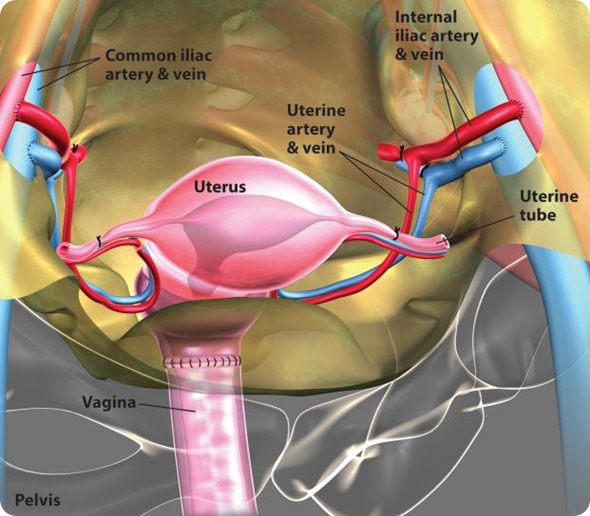Kate Bass BSc
The first US uterus transplant was performed this week by a team of surgeons at Cleveland Clinic, Cleveland, Ohio. A healthy uterus from a deceased organ donor was transplanted during a 9-hour procedure into a 26-year-old woman who was born without a uterus. The recipient is in a stable condition.

Uterine factor infertility is an irreversible condition in which a woman is either born without a uterus or has a uterus that has sustained serious damage that prevents pregnancy. It affects 3‑5% of women worldwide and, until now, women so affected were not able to carry their own offspring and had to use adoption or surrogacy to start a family.
Uterine transplants have been completed successfully at the University of Gothenburg, Sweden. So far nine uteruses have been transplanted from live post-menopausal donors. Four of the recipient women have given birth to healthy babies, and more babies are due. Two of the transplants failed.
Cleveland Clinic transplant surgeon Dr Tzakis had been present at all the uterus transplant surgeries conducted in Sweden and practiced the procedure many times before initiating his own uterus transplant clinical trial. Potential candidates for uterus transplants were screened late last year to identify those women without psychological disorders or relationship problems who were most likely to be able to cope with the demands of a undergoing transplant and participating in a clinical trial.
Since the implanted uterus will not be connected to other reproductive organs, a natural conception will still not be possible. Prior to the transplant, ten eggs were harvested from the recipient woman, fertilized with her partner's sperm and frozen. A year after the transplant, one of the resultant embryos will be implanted into the transplanted uterus.

A uterus transplant is not necessary for life so, to avoid the need for life-long anti-rejection medication, the transplanted uterus will be removed once the recipient has had one or two babies.
Although still at a very experimental stage, it appears that uterus transplant may offer the potential for women with uterine factor infertility to satisfy their desire to give birth. Further uterus transplants in both the US and the UK are planned.